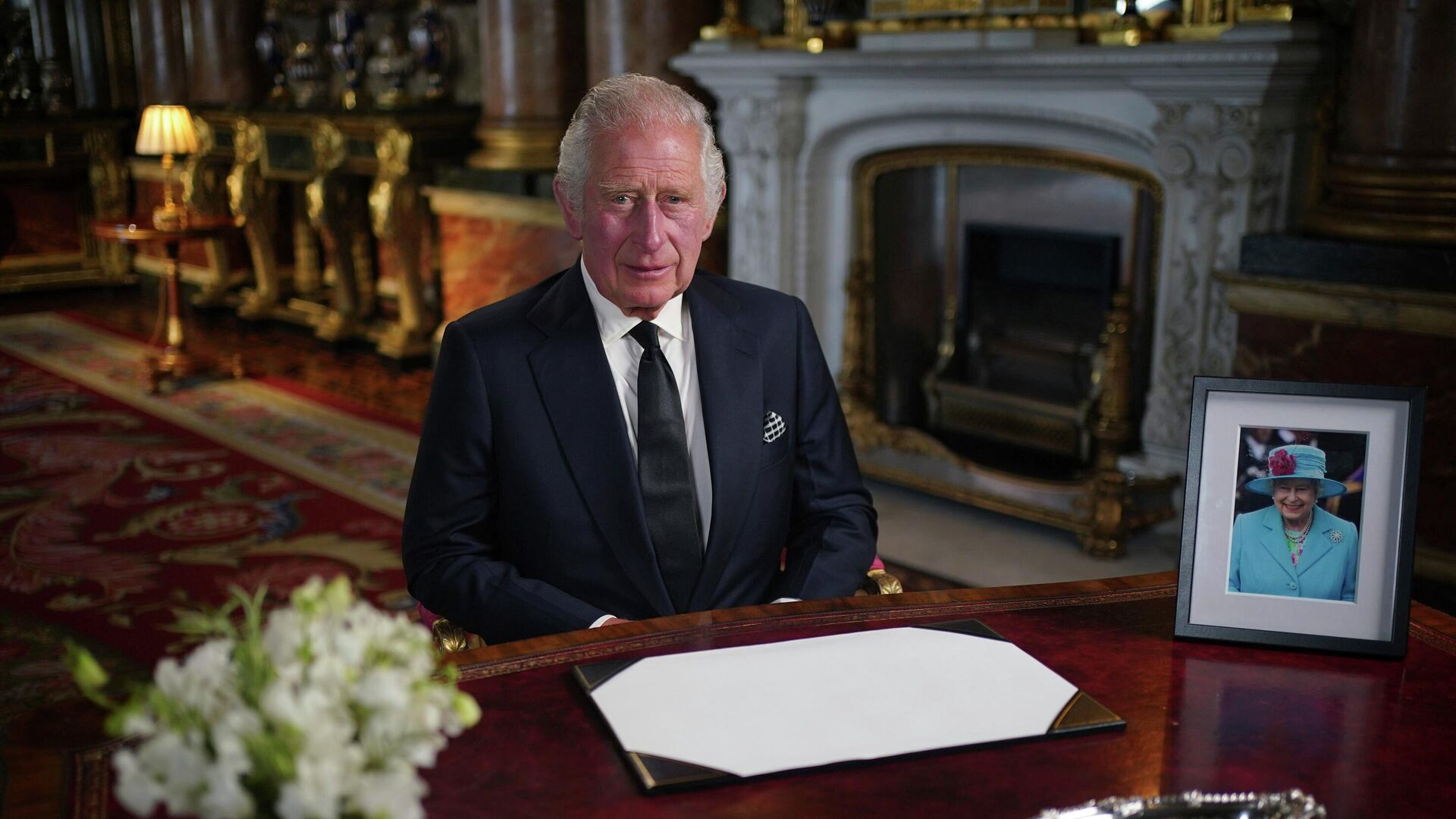https://sputnikglobe.com/20231206/mori-mps-unconventional-oath-sparks-controversy-charles-or-skin-rash-1115417197.html
Māori MPs' Unconventional Oath Sparks Controversy: Charles or Skin Rash?
Māori MPs' Unconventional Oath Sparks Controversy: Charles or Skin Rash?
Sputnik International
Instead of using the official reference "Kīngi Tiāre" for the king in Māori during the opening, three Te Pāti Māori MPs opted for "Kīngi harehare," leaving observers to question whether the term signifies "Charles" or "skin rash."
2023-12-06T00:12+0000
2023-12-06T00:12+0000
2025-04-07T11:07+0000
new zealand
king charles iii
maori
world
asia-pacific region
viral news
https://cdn1.img.sputnikglobe.com/img/07e6/09/09/1100614406_0:0:2951:1660_1920x0_80_0_0_dc2f28f5db6d2f8c40b5b0fe4a8a484f.jpg
Te Pāti Māori, a Māori political party known for its protests against swearing allegiance to New Zealand's head of state, recently brought a linguistic twist to parliamentary formalities, having since prompted a wave of eyebrow-raising gestures. The Māori word "harehare," used by the MPs, is cited in the Māori Dictionary as meaning both "Charles" and various skin conditions, including "sore" and "offensive" or "objectionable."When questioned about the unconventional choice, Te Pāti Māori co-leader Debbie Ngarewa-Packer stated that the party is always provocative, emphasizing the multiple meanings associated with words. Co-leader Rawiri Waititi explained that "hare" can be used as a term for Charles in some Māori-speaking regions, citing his personal reference to an uncle named Charles.However, conflicting interpretations emerged among Māori speakers. Tākuta Ferris, another Te Pāti Māori minister, referred to "hare" as "East Coast for Charles," while a political reporter noted that in his region, it means "scab."New Zealand First MP Shane Jones accused the MPs of making fun of the transliteration, emphasizing its potential objectionable connotations.Māori language expert Jack Potaka acknowledged the diverse meanings across regions, confirming "skin rash" and "Charles" as possible interpretations, in an email to UK media. He cautioned that the speaker's intent determines the accurate meaning, highlighting the linguistic diversity that can lead to varied interpretations influenced by regional nuances.Adding another layer to the unconventional oath, all Te Pāti Māori MPs broke protocol by swearing allegiance to their grandchildren before pledging allegiance to the king. The oath's legitimacy is yet to be disputed by the clerk of the House.
https://sputnikglobe.com/20220510/prince-harry-roasted-for-appropriating-maori-culture-after-starring-in-skit-plugging-travalyst-1095401845.html
new zealand
Sputnik International
feedback@sputniknews.com
+74956456601
MIA „Rossiya Segodnya“
2023
News
en_EN
Sputnik International
feedback@sputniknews.com
+74956456601
MIA „Rossiya Segodnya“
Sputnik International
feedback@sputniknews.com
+74956456601
MIA „Rossiya Segodnya“
maori party, new zealand maori, kingi tiare ,te pati maori, rawiri waititi, king charles iii
maori party, new zealand maori, kingi tiare ,te pati maori, rawiri waititi, king charles iii
Māori MPs' Unconventional Oath Sparks Controversy: Charles or Skin Rash?
00:12 GMT 06.12.2023 (Updated: 11:07 GMT 07.04.2025) Māori party MPs in New Zealand's 54th parliament have ignited a debate over the translation of their oath of allegiance to King Charles III.
Te Pāti Māori, a Māori political party known for its protests against swearing allegiance to New Zealand's head of state, recently brought a linguistic twist to parliamentary formalities, having since prompted a wave of eyebrow-raising gestures.
The Māori word "harehare," used by the MPs, is cited in the Māori Dictionary as meaning both "Charles" and various skin conditions, including "sore" and "offensive" or "objectionable."
When questioned about the unconventional choice, Te Pāti Māori co-leader Debbie Ngarewa-Packer stated that the party is always provocative, emphasizing the multiple meanings associated with words. Co-leader Rawiri Waititi explained that "hare" can be used as a term for Charles in some Māori-speaking regions, citing his personal reference to an uncle named Charles.
However, conflicting interpretations emerged among Māori speakers. Tākuta Ferris, another Te Pāti Māori minister, referred to "hare" as "East Coast for Charles," while a political reporter noted that in his region, it means "scab."
New Zealand First MP Shane Jones accused the MPs of making fun of the transliteration, emphasizing its potential objectionable connotations.
The controversy unfolded against the backdrop of widespread protests across New Zealand, where thousands expressed dissatisfaction with the new government's policies, fearing a potential unraveling of decades of indigenous progress.
Māori language expert Jack Potaka acknowledged the diverse meanings across regions, confirming "skin rash" and "Charles" as possible interpretations, in an email to UK media. He cautioned that the speaker's intent determines the accurate meaning, highlighting the linguistic diversity that can lead to varied interpretations influenced by regional nuances.
Adding another layer to the unconventional oath, all Te Pāti Māori MPs broke protocol by swearing allegiance to their grandchildren before pledging allegiance to the king. The oath's legitimacy is yet to be disputed by the clerk of the House.



